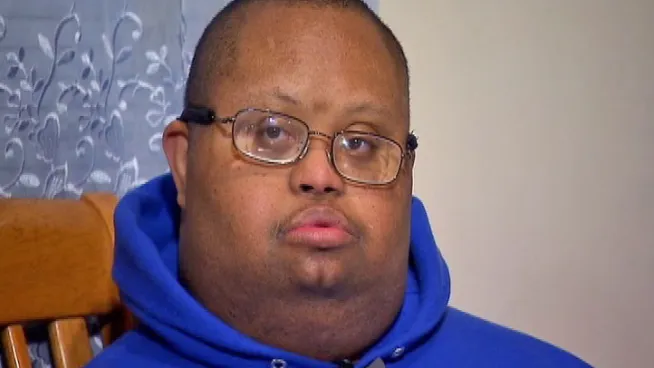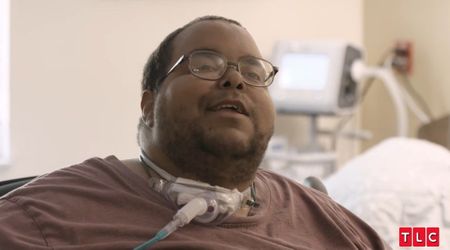When we talk about Down syndrome, it’s often through a general lens, without looking closely at how race and identity shape experiences. For Black individuals with Down syndrome, the journey can involve unique health concerns, cultural dynamics, and social support systems. It’s time we shine a light on the intersection of race and disability in a way that’s inclusive, informed, and empowering. In this post, we’ll explore what it means to be a Black person with Down syndrome—covering medical insights, community perspectives, and how to find support that truly fits.
Down syndrome affects people from all backgrounds, yet the way it shows up in daily life can be different depending on where you come from and what resources are available. For Black families, there are often layers of history, access to care, and cultural attitudes that influence how Down syndrome is understood and addressed.
Whether you're a parent, caregiver, or someone with personal experience, this guide aims to offer clear, practical, and meaningful information. Let’s dive into the layers of what it means to navigate life as a Black person with Down syndrome.
Table of Contents
- What Is Down Syndrome?
- Health Concerns for Black Individuals with Down Syndrome
- Cultural and Social Factors That Shape the Experience
- Representation and Community Support
- How to Find Resources and Build a Support Network
- Frequently Asked Questions
What Is Down Syndrome?
Down syndrome is a genetic condition that happens when a person is born with an extra copy of chromosome 21. This can affect how the brain and body develop, though every individual is different. Some people may face learning challenges or physical health issues, while others live fully independent lives.
It’s not caused by anything a parent does or doesn’t do during pregnancy. It’s just one of those things that happens when cells divide in a certain way. And while it can come with challenges, many people with Down syndrome lead happy, productive lives full of love and connection.
There’s a lot of research going into how Down syndrome affects different populations. Some studies are looking at early detection, like noninvasive prenatal testing, which has shown to be both effective and affordable. These kinds of advancements can help families prepare and make informed decisions early on.
Health Concerns for Black Individuals with Down Syndrome
When it comes to health, people with Down syndrome often face a higher risk for certain conditions, like heart defects, hearing loss, and thyroid problems. But for Black individuals, there may be additional factors at play, such as access to quality healthcare and genetic markers that are more common in certain ethnic groups.
One thing researchers have found is that renal anomalies—basically, differences in kidney structure—are sometimes seen as markers for Down syndrome. These can vary by race, and early detection is key to managing long-term health. That’s why regular screenings and early intervention are super important.
There’s also the question of how conditions like hypertension are treated in emergencies. Intravenous antihypertensive agents are commonly used, but the way they’re applied can vary depending on where a person lives and what kind of medical care they receive. For Black communities, systemic issues in healthcare can sometimes affect treatment outcomes, making advocacy and awareness even more crucial.
Cultural and Social Factors That Shape the Experience
For many Black families, raising a child with Down syndrome means navigating a world that may not always understand their unique needs. Cultural beliefs around disability can differ, and sometimes that means facing stigma or misunderstanding within the community.
Yet, at the same time, many Black families have strong support networks, deeply rooted in faith, extended family, and shared experiences. These connections can be a powerful source of strength, helping individuals with Down syndrome thrive in environments that celebrate both their disability and their heritage.
There’s also the aspect of visibility. Representation matters, and seeing successful Black people with Down syndrome in media, education, or advocacy can inspire hope and change how others see them. It’s not just about inclusion—it’s about rewriting the narrative to include all kinds of people, in all their complexity.
Representation and Community Support
While Down syndrome is widely recognized, it’s still rare to see Black individuals with Down syndrome featured in mainstream media or public awareness campaigns. This lack of representation can make it harder for families to find role models or feel seen in the broader disability community.
Online spaces can help fill that gap. Communities like the ones found on Reddit, where Black women and people of African descent connect, can offer a sense of belonging and shared experience. These groups, while not always focused on disability, can be a place to start conversations and build understanding.
Support doesn’t just come from family—it comes from systems. Schools, workplaces, and healthcare providers all play a role in creating environments where people with Down syndrome can thrive. For Black individuals, this means addressing both racial and disability-related barriers to ensure full participation and dignity.
How to Find Resources and Build a Support Network
If you're looking for support, the first step is often knowing where to start. Here are a few practical tips:
- Connect with local disability organizations that have experience working with diverse communities.
- Look for support groups specifically for Black families raising children with disabilities.
- Use online forums to ask questions and share stories with others who’ve been in your shoes.
- Seek culturally competent healthcare providers who understand both Down syndrome and the unique needs of Black patients.
Education is another big piece of the puzzle. The more people know, the less fear and misunderstanding there is. Teaching kids in schools about Down syndrome, and including diverse stories in those lessons, can make a huge difference in how future generations see disability.
And if you’re a caregiver or parent, don’t forget to take care of yourself, too. It’s not easy work, and having a strong support system makes all the difference. Sometimes just knowing you’re not alone can be a powerful comfort.
Learn more about Down syndrome from the National Institute of Neurological Disorders and Stroke, a trusted government source with up-to-date info.
Learn more about how to build a strong support system for individuals with Down syndrome on our site.
Frequently Asked Questions
What are common health issues for Black people with Down syndrome?
Black individuals with Down syndrome may have a higher risk for certain conditions like heart defects, renal anomalies, and hypertension. Access to early screenings and consistent medical care can make a big difference in managing these issues.
How can families find culturally appropriate support?
Look for local or online support groups that specifically include or understand the needs of Black families. Connecting with disability-focused organizations that value diversity can also help in finding the right resources.
Is there a difference in how Down syndrome is viewed across cultures?
Yes, cultural attitudes toward disability can vary widely. In some communities, there may be stigma or misunderstanding, while others offer strong family and community support. It’s important to find a space that feels welcoming and informed.



Detail Author:
- Name : Yasmine Beahan
- Username : ezequiel97
- Email : wiza.willie@hotmail.com
- Birthdate : 1996-02-29
- Address : 413 Judge Corners South Branson, NE 85593
- Phone : +1 (623) 471-6112
- Company : Quigley, Cassin and Haley
- Job : Precision Etcher and Engraver
- Bio : Ipsa doloribus quibusdam aspernatur suscipit. Sed at repudiandae optio est. Dolore ut impedit quia ut. Sed officia qui sapiente iste ab aut.
Socials
twitter:
- url : https://twitter.com/jennie_kunde
- username : jennie_kunde
- bio : Fugiat molestiae et eum occaecati quaerat iure impedit. Vel deleniti sequi asperiores et deserunt.
- followers : 1061
- following : 1493
linkedin:
- url : https://linkedin.com/in/jennie_kunde
- username : jennie_kunde
- bio : Labore eligendi accusantium commodi quibusdam.
- followers : 6355
- following : 907
tiktok:
- url : https://tiktok.com/@jennie.kunde
- username : jennie.kunde
- bio : Voluptas neque molestiae exercitationem vel. Quae dignissimos in enim placeat.
- followers : 1313
- following : 620
facebook:
- url : https://facebook.com/jennie_dev
- username : jennie_dev
- bio : Cum sed voluptatum ullam est. Eum non iusto odit quaerat ea ducimus.
- followers : 631
- following : 752

